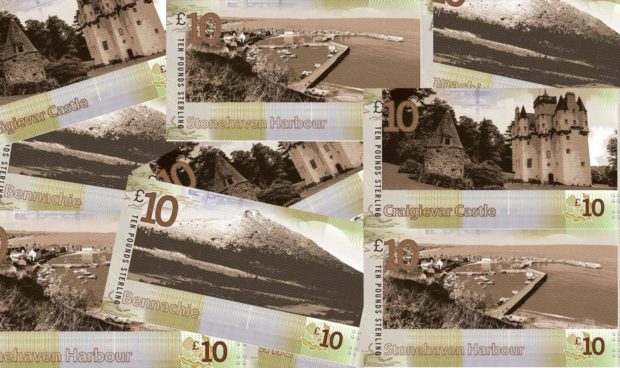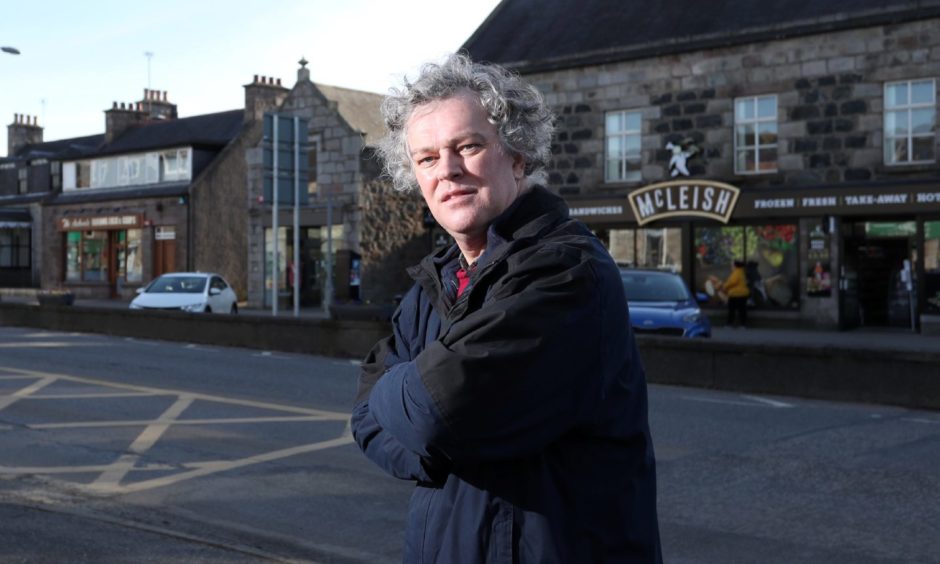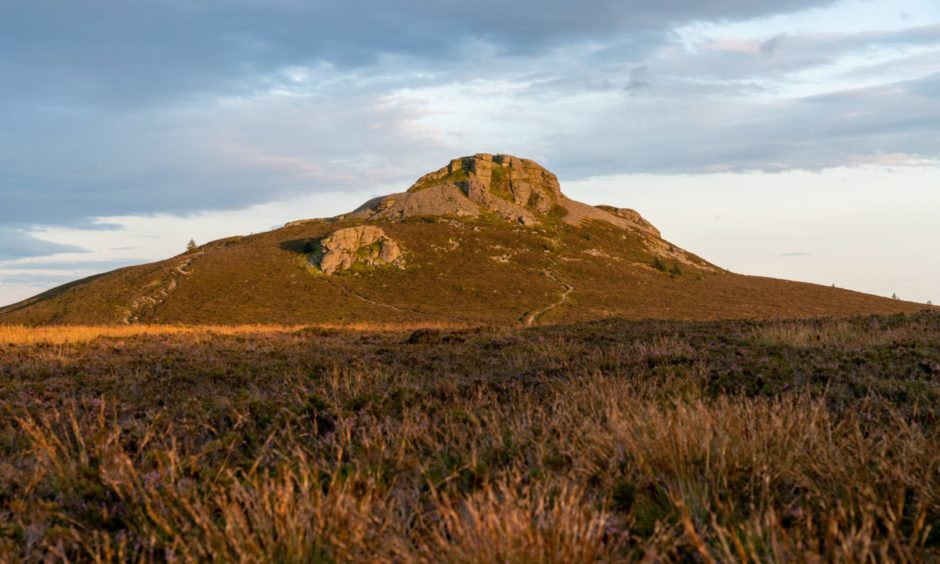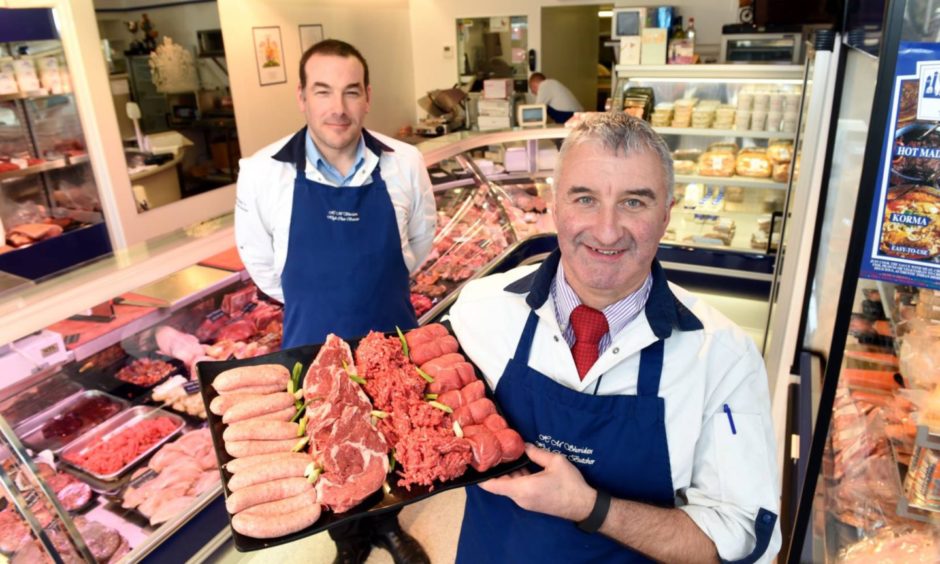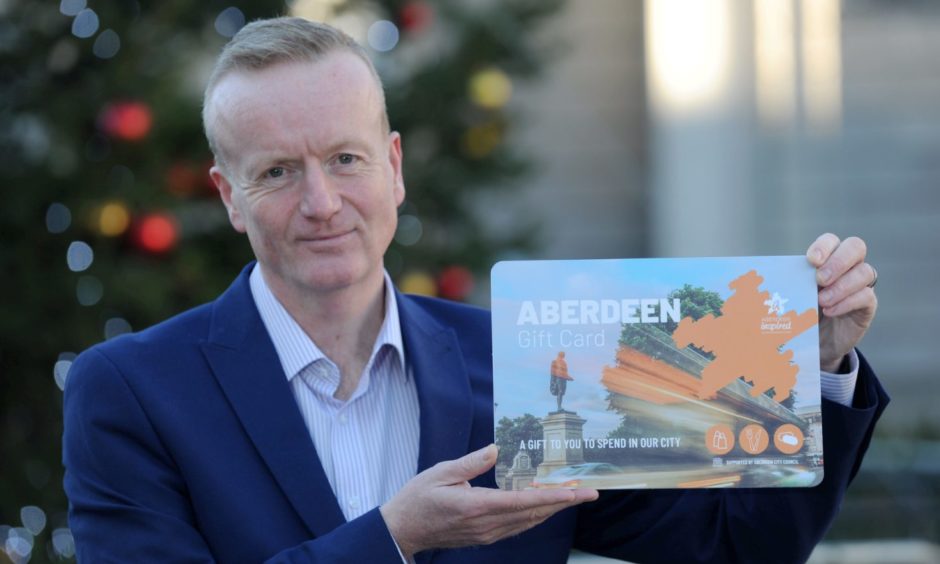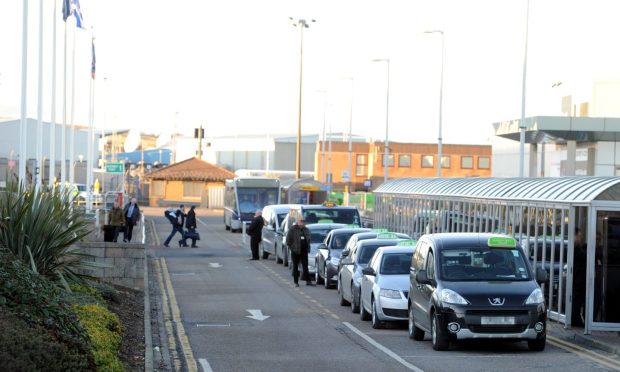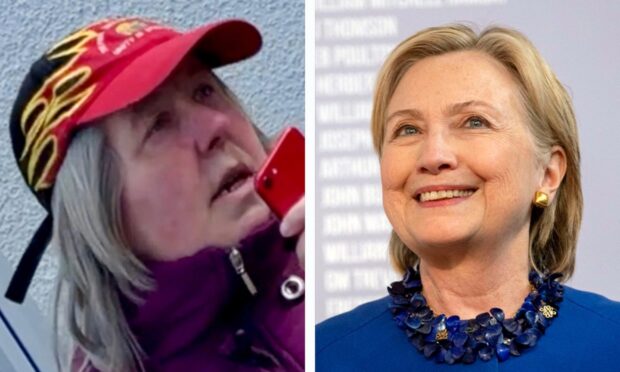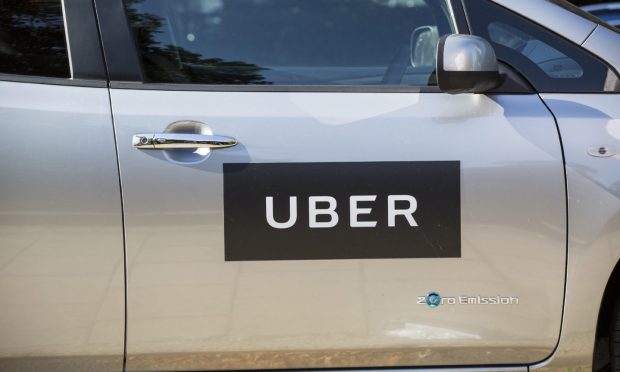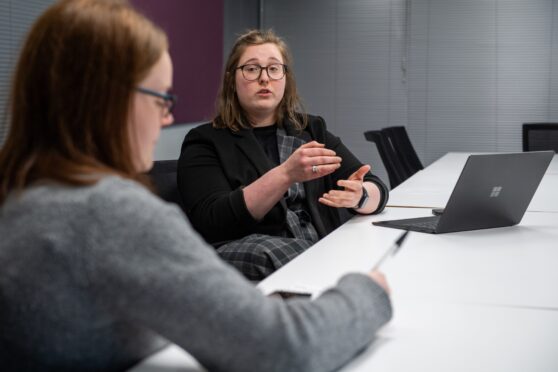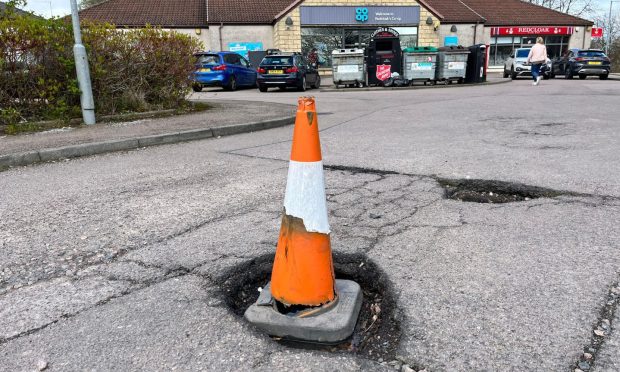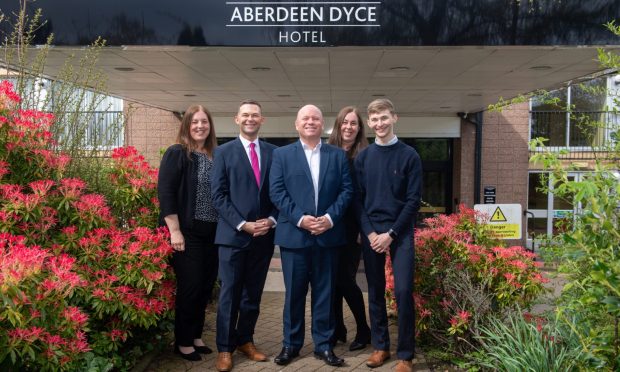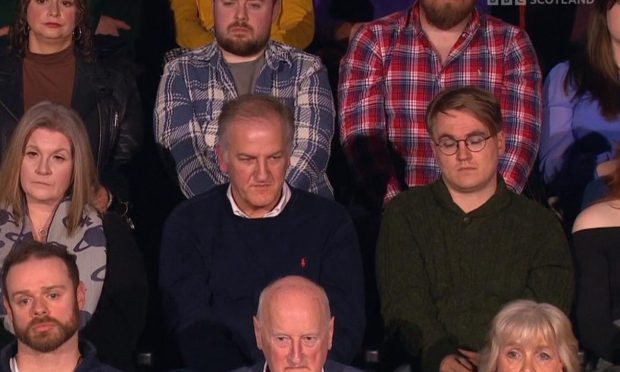Banknotes bearing the image of Bennachie could form part of a special “Aberdeenshire pound” hailed as a way of helping the local economy bounce back from the pandemic.
East Garioch councillor Martin Ford says it is “worth looking into” the feasibility of launching a “complementary currency” which can only be used in the north-east.
The idea has already been backed by the Ballater butcher which supplies the royal family when they are visiting Balmoral.
Scores of cities across the world, including several in England, have adopted this approach in an effort to help their high streets flourish as local traders compete with giant international retail firms.
Also known as community currency, the scheme uses specially designed banknotes or coins that can only be spent within a certain locale as an alternative to the official, national currency.
“We need to do something eye-catching and different”
Although it is not legal tender, it is interchangeable with the British pound and treated as such – with the goal to encourage spending in local economy.
The main purpose of the system is to keep the cash flow within a town or region as it circulates only between local consumers, businesses and suppliers.
Mr Ford believes that the pandemic has provided an opportunity to consider different ways to “build back better”.
He said: “The changes brought about by Covid-19 all point us towards a greater self-reliance and the main purpose of community currencies is that they promote local exchange, production and economic activity.
“We’ve just had clearly a profound and damaging economic shock in the form of the pandemic, and as part of the recovery process, I think we need to do something eye-catching and different.
“We need to run a flag on a pole as a statement that the Aberdeenshire economy is not just back working again, but that we are genuinely going to try do things differently and better, and one of the ways we might do that is to have an Aberdeenshire complementary currency that we haven’t had before.
“This would be innovative in itself and it would mark our return to more normal levels of economic activity by a genuinely new step forward.
“So I think there’s a good argument for having a look at it at this particular point and asking whether it’s something we want in the new Aberdeenshire world.”
What could the Aberdeenshire currency be?
Following the example of other cities that have introduced the scheme over the years, the north-east printed notes could bare the name of the region or specific area they circulate in.
Whether they would be called Aberdeenshire pound or Buchan, or Garioch pound, it’s suggested that they could spotlight the region’s most distinguished landmarks and features – such as the Bennachie hill, a harbour with fishing boats or a famous castle in Aberdeenshire.
Speaking to the P&J, local business owners expressed mixed reactions about the idea of community currency.
Butcher John Sinclair, 55, who co-owns HM Sheridan in Ballater, said: “I suppose something like this would be welcomed and it will keep local businesses alive.
“With the advice to stick with the so-called staycations this year, people are going to spend in the local community anyway, so if that’s the way to keep this kind of thing and help the money stay in the community and in the Aberdeenshire area, it’s definitely something I would like.”
Alexander Robertson, 33, who has run a gardening service in Peterhead for seven years, also welcomed the idea of the scheme.
He said: “I think it could be beneficial for the area and I’d definitely be interested in looking into it.
“Something like that could help local businesses have more of a chance to get some of the bigger work contracts, instead of having companies down south scoop them.”
However, owner of the Spotty Bag Shop in Banff, 47-year-old Des Cheyne, said this may not be the best way to support local trade.
“My initial thinking would be that something like this wouldn’t be that beneficial and there are other things to concentrate on”, Mr Cheyne said.
“I would definitely welcome any new initiative that will support local business, but I’m not sure this would be the best idea to do so.
“There are more important things to worry about in this moment and time and we need to look at the bigger picture.”
Community currency in the UK
Complementary currencies have gained increasing popularity in the last two decades with a number of UK cities implementing the scheme to keep money local and forge a special link between local communities.
Schemes have sprung up in places such as Bristol, Brixton, Kingston, the Lake District, Lewes, Liverpool, Totnes and Exeter.
Although some of the initiatives folded after a few years – including the likes of the Totnes and Exeter pound – others are still ongoing.
Launched in 2010, The Bristol pound is currently the UK’s largest and most successful community currency.
Bristol pound managing director, Diana Finch, explained that there are many challenges in creating a viable business model for local currency, mainly as people are using cash less in favour of contactless payments.
However, she added that the key to success is adapting to the ever-changing climate and experimenting with ideas to meet new demands.
The team has recently developed Bristol Pay – a new non-profit token scheme that aims to prevent money leaving the city through transaction charges, and to generate funds for local community and environmental projects.
Ms Finch said: “If we think about these things as experiments – they have all come out of people thinking that there are some real problems with our current economic model, and that we need to start thinking about alternatives and having more than one approach to how we run our economy.
“Everybody is cutting new ground in the area of new economics, complementary currencies and experimenting with ideas and these are very important things to do.
“So I would fully encourage Aberdeenshire to start thinking about how they can look beyond the GDP and encourage some other sorts of interaction and consumer behaviours that are going to get us out of increasing inequality and environmental degradation that we see as the result of the current economic norms.”
Supporting local business
Over the last year, business leaders across Scotland and the north-east have launched innovative schemes to help save local high streets and support retailers.
The devastating impact of the pandemic has resulted in the introduction of different gift card and discount initiatives, which put more focus on local produce and independent firms.
The aim was to bring people back to the city centre during its hour of greatest need and boost the economy.
A spokeswoman for Aberdeen and Grampian Chamber of Commerce said: “Consumer confidence and demand is vital to getting our economy moving again and we can all can play a part in supporting local businesses by choosing to make small and simple changes to how we shop.
“The Aberdeen gift card, which launched in the city before Christmas is a good example of this in action, as is the North East Now resource which was created by the Chamber and its partners specifically to make it as easy as possible for consumers to find a myriad of different ways to support local firms.”
